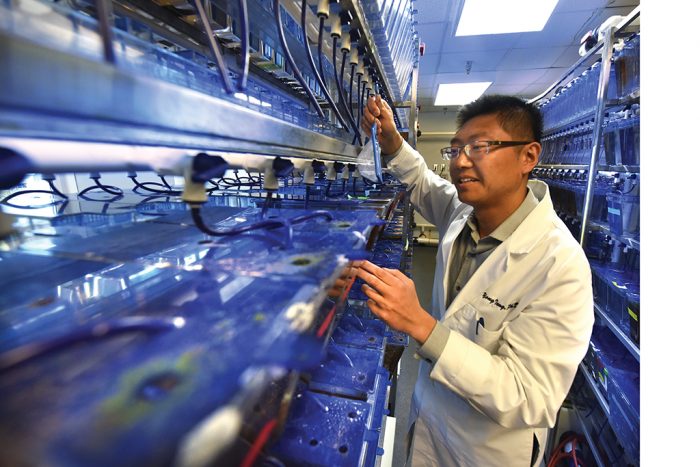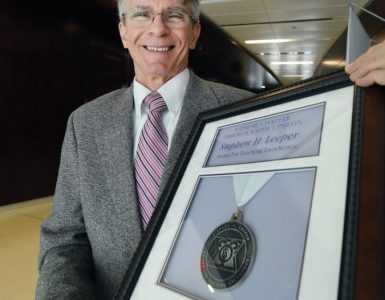The first question on many patients’ minds after a cancer diagnosis is the one they most dread to hear answered: Has it spread?
The spread, or metastasis, of cancer from one organ or other body part to another can indicate the aggressiveness and potential danger of the tumor, and health care professionals do everything possible to keep it from happening. Dr. Yong Teng, assistant professor of oral biology in The Dental College of Georgia, is among those on the front lines gleaning genetic and cellular clues that may unlock the mysteries involved in metastasis.
Teng, who joined DCG last year after serving on the Medical College of Georgia faculty, has devoted his career to analyzing the central regulators in cancer progression and metastasis. Says Teng, whose current research is funded by the Department of Defense, “My studies have identified several novel cancer targets and dissected their genetic contribution to various aspects of cancer predisposition, development and progression in a variety of cancer types, including head and neck cancer.”
His studies laid the groundwork for a multipronged approach to the most comprehensive analysis possible of potential contributing factors, including analyses related to cell and molecular biology, genomics, epigenetics, proteomics, protein chemistry and animal-modeling techniques.
He has also developed novel ways to use stapled peptides – chains of amino acid compounds with a synthetic brace – to target intracellular control points in cancer cells that cannot be modulated by current therapies. Enhanced drug delivery is also on his radar.
Says Teng, “I hope my research helps elucidate the molecular mechanisms underlying the central regulators of metastasis and build a foundation for novel cancer therapies.”










